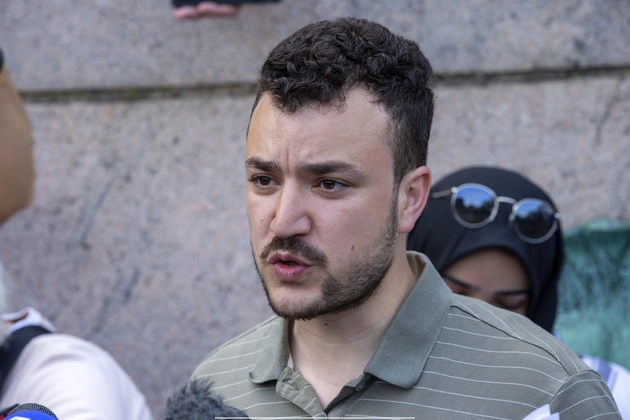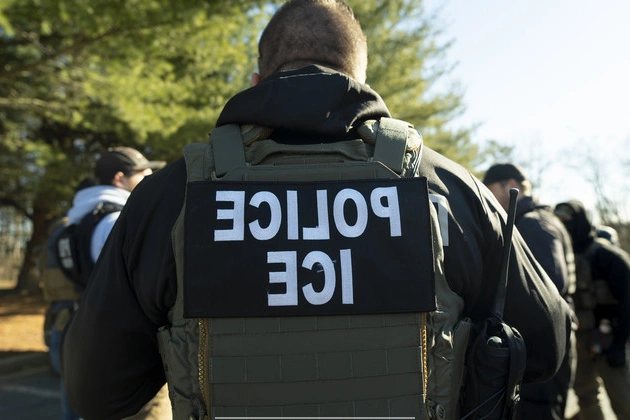
A group of prominent military contractors, including former Blackwater CEO Erik Prince, has pitched the Trump White House on a proposal to carry out mass deportations through a network of “processing camps” on military bases, a private fleet of 100 planes, and a “small army” of private citizens empowered to make arrests.
The Ambitious Blueprint for Mass Deportations
The blueprint — laid out in a 26-page document President Donald Trump’s advisers received before the inauguration — carries an estimated price tag of $25 billion and recommends a range of aggressive tactics to rapidly deport 12 million people before the 2026 midterms, including some that would likely face legal and operational challenges, according to a copy obtained by POLITICO.
The group, which includes some former immigration officials, is led by Prince, who has close ties to Trump, and Bill Mathews, the former chief operating officer of Blackwater, the military contractor known for its role in providing security, training and logistical support to U.S. forces in Iraq and Afghanistan during the war on terror.
The emergence of the proposal, marked “unsolicited,” is indicative of the major hurdles the administration faces as it struggles to find the resources to fulfill Trump’s ambitious deportation agenda. The administration’s desire to make good on that signature campaign promise has created an opening for private contractors who see a rare area in which the Trump administration is likely to increase spending.
Deporting 12 million people in two years “would require the government to eject nearly 500,000 illegal aliens per month,” the document says. “To keep pace with the Trump deportations, it would require a 600% increase in activity. It is unlikely that the government could swell its internal ranks to keep pace with this demand …in order to process this enormous number of deportations, the government should enlist outside assistance.”
Challenges and Legal Concerns
Top White House officials are having multiple conversations with military contractors, coinciding with Republicans’ mad dash on Capitol Hill to secure more resources for the president’s immigration crackdown. Immigration and Customs Enforcement increased arrests during Trump’s first couple of weeks in office, but the pace has since slowed, and arrests do not always equal deportations. The pressure campaign to rapidly increase the president’s deportation numbers has already resulted in the reassigning of top immigration officials as the administration faces a number of resource challenges, including a need for detention capacity and additional personnel.
“People want this stood up quickly, and understand the government is always very slow to do things,” said Steve Bannon, who served in Trump’s first term, remains close to the president and is aware of the proposal. “It’s smart to start bidding out right now and get a feel for what else outside companies, contractors can do.”
It’s not clear if the president has seen the plan, which has been circulating among Trump allies since December. Trump had vowed that mass deportations would begin on his first day in office, a promise he has not kept.
The Legal and Logistical Complexities
His latest proposal repeatedly argues that the federal government does not have the resources necessary to fulfill the president’s goal and offers a step-by-step plan for expanding the administration’s immigration enforcement capacity — from contracting a team to locate deportable migrants to deploying a fleet of 100 aircraft that the team says would be necessary for “two years to clear the illegal population out of the nation.”
But the pitch for rapid-fire deportations includes a slew of suggestions that appear to ignore key facets of the nation’s complex immigration laws, according to three former immigration and government officials who reviewed the proposal for POLITICO.
The proposal notes that it is “unlikely that the government could apprehend all of the 12m illegal aliens without outside assistance,” and suggest deputizing 10,000 private citizens, including military veterans, former law enforcement officials and retired ICE and CBP officers, giving them expedited training and the same federal law enforcement powers of immigration officials.
Concerns and Criticisms
“I don’t see how you could do private sector, deputized law enforcement officers,” Sandweg said. “That’s subject to an immediate injunction by a court.”
“The idea of forcibly removing 12 million people from the United States is not just operationally impossible — it is a moral and economic catastrophe in the making,” Houser said.
If the Trump administration moved forward with the bid, the group would be entering an already well-established and competitive network of contractors used by ICE. There are, however, rules in place to ensure the government is using taxpayer dollars in the most cost-effective and efficient manner. But Prince’s effort is designed to perform the entire mass deportations operation without a competitive bidding process.
Aside from Prince and Mathews, other key personnel are listed in the document, including former immigration officials and military contractors: retired ICE officials Robert Alfieri and Michael Somers; Dirk Totten, a decorated Army officer and a former executive vice president for Gulfstream; Richard Pere, a longtime military contractor and aviation expert who worked with Blackwater; Ken Chavez, the chief of police in Severance, Colo.; Louis Gobern, a military contractor who’s worked closely with the Defense Department; and Douglas Brennan, who has worked with the U.S. government and started several billion dollar aviation firms.
Prince and Mathews use the first several pages of the proposal to address why the White House should consider their bid, echoing Trump’s rhetoric, including unsubstantiated claims that Democrats have used immigration to gain an electoral advantage, that migrants commit more violent crime, and that illegal immigration has placed “unimaginable burdens” on state welfare systems, public education systems and country’s economy.















